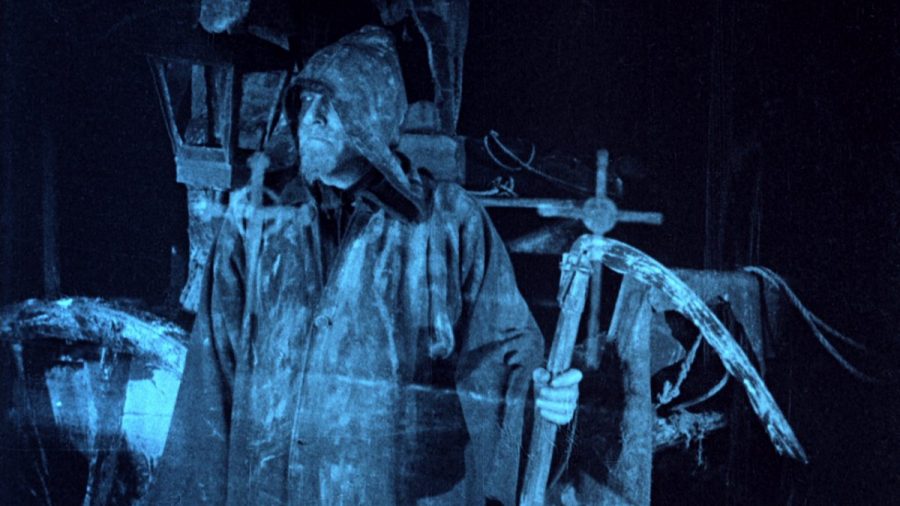Part ghost story, part religious fable, Victor Sjöström’s The Phantom Carriage, a tale of sin, death, destruction and redemption, and described as “the film of all films” by Ingmar Bergman is perhaps one of the best known, and most accomplished examples of European silent cinema.
Released on the 1st of January 1921, and based on the novel by Selma Lagerlöf, Sjöström’s vision of man’s infallibility and selfishness stars the director himself as the film’s unlikeable anti-hero, David Holm, a drunk who abused his family and squandered every chance of salvation offered to him, particularly by the kindly, Edit (Astrid Holm). But Holm’s hatred and addictions clash with Swedish legend, as he dies at the stroke of midnight on New Year’s Eve, and is doomed to drive the phantom chariot for one year, picking up the souls of the dead.
Evoking obvious similarities of Charles Dickens’ A Christmas Carol, The Phantom Carriage, while set in a different time, another country and dealing with poverty and alcoholism over sheer miserly tightfistedness, manages to be an almost timeless depiction of human cruelty and frailty. So loved by Bergman, that he is said to have watched it at least once a year, this film was an experiment for Sjöström, as it was filmed on a specially made indoor set that he could have complete control over. Thought-provoking and beautifully shot, The Phantom Carriage is a classic piece of European filmmaking that features impressive effects, expressive acting and a reminder that poverty and addiction are just as prevalent now as they were in the early 20th century. Eerie and still chillingly effective nearly 100 years after its original release date, the Filmhouse would be wise to screen this film again with the live piano accompaniment by Will Pickvance for a creepy, yet thoughtful night out.
Follow Amy on Twitter @TrashTaylor
